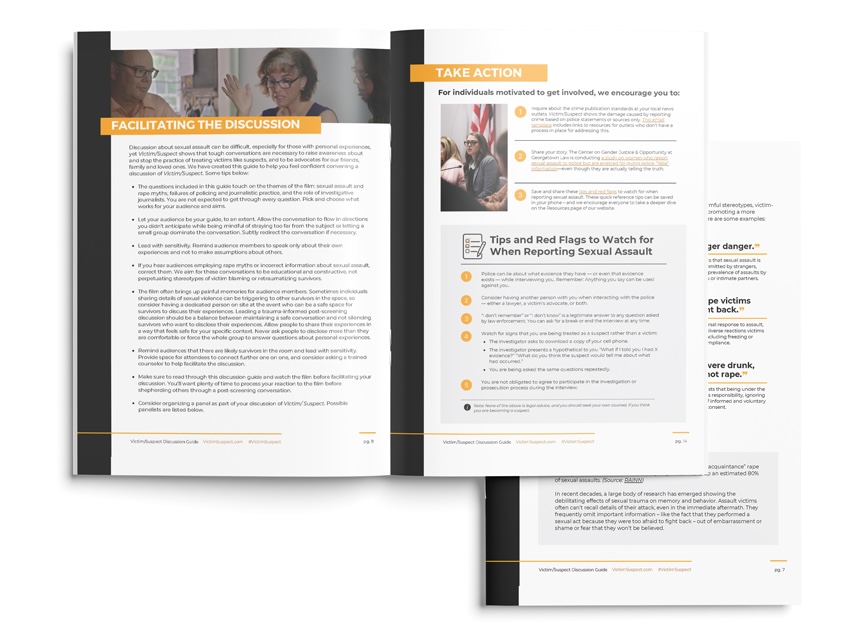Victim/Suspect can be a powerful tool to spark conversation, raise awareness, and inspire change. This page offers guidance for hosting a screening and leading discussions about policing, journalism, and the persistent myths that shape how sexual assault is perceived and handled. You’ll find key scenes from the film, expert-led webinars, and legal resources to help deepen understanding and support survivor-centered advocacy in your community or organization.
Tools for Advocates
When Victims Become Suspects
Developed for screenings of the documentary Victim/Suspect and conversations that follow, our discussion guide equips audiences with tools to confront the troubling reality of sexual assault survivors being criminalized after reporting. Featuring thematic questions, background on rape myths, and strategies for trauma-informed conversation, it’s designed to foster honest dialogue, challenge harmful biases, and support systemic change in policing, journalism, and advocacy.





